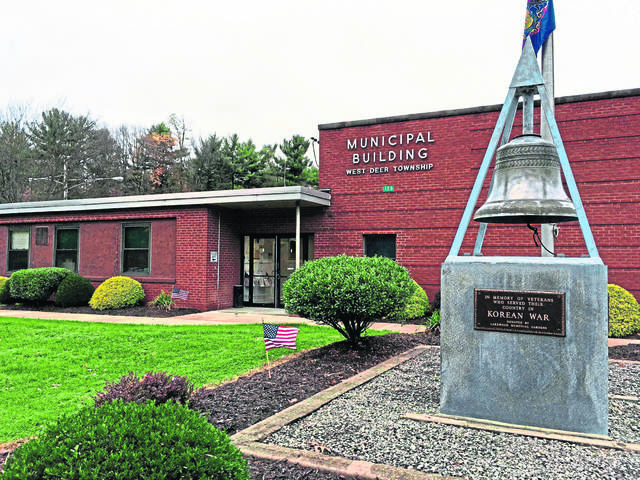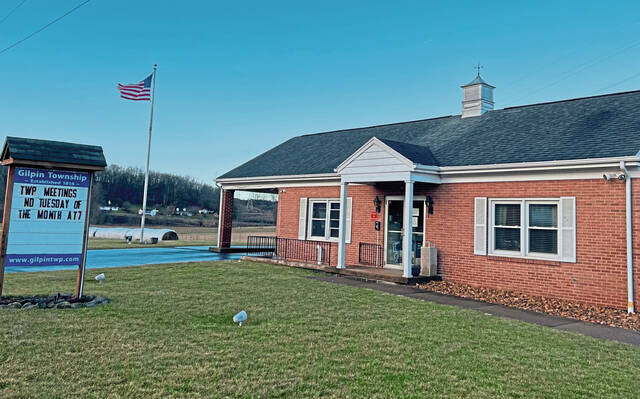West Deer supervisors are one step closer to imposing harsher fines on people whose alarms accidentally go off three or more times per year.
Supervisors on Wednesday approved advertising an update to the township’s false alarm ordinance, which could potentially be voted on and approved at the supervisors’ Oct. 21 meeting.
Supervisor Brandon Forbes proposed the update because responding to false alarms places a substantial burden on police and volunteer fire companies.
“We don’t want to see our volunteers going out for numerous false alarms and taking them away from calls that really need attention,” Supervisor Beverly Jordan said. “We felt that this is one way that we can hopefully alleviate some of those false alarms.”
The proposed update would fine people $100 each time an alarm goes off more than twice per year. People would not be charged if an alarm accidentally goes off one or two times per year. The specifications would take place after the first 30 days of installation. The previous ordinance had a tiered system that charged people based on the number of times an alarm went off. The update would nix that system and charge people a flat $100 each time an alarm goes off three or more times.
“Overall, I think this ordinance was cleaned up nicely,” Forbes said. “We updated the fine structure, and we also ensured that the volunteer fire companies will receive the proceeds from the false alarms that they do have to go out and attend.”
Josh Wiegand is chief of West Deer Township Volunteer Fire Company No. 3. In 2019, the company responded to 234 fire calls at residences, schools and commercial buildings. Of those calls, 69 were for automatic fire alarms.
“Some of them might have been burnt food from cooking. Others may have just been from a loss of electrical power, or dust in a smoke detector, or intentionally setting (them off) for the purposes of running a drill at a commercial business and not notifying their alarm company,” Wiegand said.
Wiegand said of those 69 automatic fire alarm calls, 26 were at the same four addresses. He said firefighters were called to one particular commercial building five times in two days. The building was being renovated.
“Some of these — in fact, I would say half of these — are preventable,” Wiegand said.
In addition to increasing the fine, the updated ordinance would make it so any charge collected as a result would be given to the volunteer fire company that responded to the call. If multiple fire companies respond, the collected charge will be divided evenly among them.
If the police department responds without the assistance of a fire company, the money would go into the township’s general fund.
If multiple false alarms occur at an apartment building, tenant-occupied property or senior living center, the record owner of the property will be responsible for paying the fine.
Wiegand said the updated ordinance could alleviate some of the pressures his firefighters face. The firefighters don’t know the cause of an alarm until someone gets to the scene or someone calls to tell them it was a false alarm.
“It’s a burden on us because we as volunteers have to stop what we’re doing to respond to this false alarm that could have been prevented,” Wiegand said.
Wiegand added, “The other adverse effect of that is … if our guys keep responding to the same false alarm, it’s going to be like the ‘Boy Who Cried Wolf.’ They’re going to assume that it’s another false alarm and they won’t go, and then it may actually be a fire that time.”
An accidental false alarm, as defined by the updated ordinance is:
• A malfunction because of the failure to properly test and maintain an alarm system.
• Smoking in a no-smoking area where an automatic alarm is installed.
• Failing to notify the dispatch center that the alarm system is connected to when testing or maintaining the alarm system.
• Not taking all necessary precautions to eliminate false alarms during construction work in the vicinity of the system.
Wiegand said the township did a good job defining what constitutes an accidental false alarm. He said an instance of someone burning food wouldn’t count as long as their smoke detector was working correctly.
“I’m glad to see we’re not fining people or holding it against them when the system does work appropriately,” Wiegand said.








